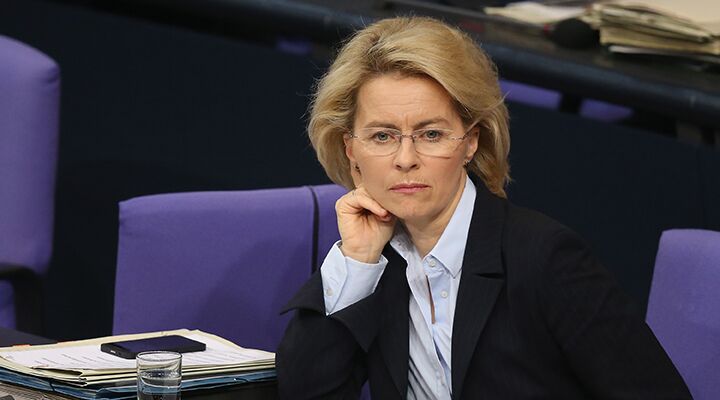
German Defense Minister: NATO Must Station Soldiers in the Baltics
German Defense Minister Ursula von der Leyen called for nato to send soldiers to the Baltic states—Estonia, Latvia and Lithuania—to reassure them in the face of growing Russian aggression.
“Now it has become important for alliance members on the periphery that nato shows its presence,” von der Leyen said in an interview with Der Spiegel, published March 22. “The current situation clearly shows that nato isn’t just a military alliance, but is also a political one.”
Von der Leyen’s comments are exactly what the Baltic countries want to hear. Estonia, for example, has a substantial Russian population, deliberately moved there by Stalin to make independence from Russia more difficult. If Russia chooses to invade, Crimea-style, the only thing Estonia has to protect it is security guarantees from nato. Stationing troops in Estonia would give the country a much clearer assurance that the alliance will be there for it if push comes to shove.
This is exactly what von der Leyen had in mind. When interviewed by German tv Channel ard the next day, she said, “It’s important to make clear that nato isn’t just something on paper, but that we are there for each other.”
But her comments have been controversial within Germany. Her coalition partners, the Social Democratic Party, was quick to dismiss her statements. One of their defense experts, Rainer Arnold, essentially told von der Leyen to mind her own business and leave foreign policy to the “wise hands” of the foreign minister. Even the chairman of the Foreign Affairs Committee in Germany’s parliament, Norbert Röttgen, who is a member of the same party as von der Leyen, said that there would be no military response to Russian President Vladimir Putin’s aggression.
At the same time, several German ex-generals have called for Germany to strengthen its armed forces.
“We need compulsory military service,” retired Gen. Egon Ramms told Bild. “There is no other way for Germany to guarantee national defense within the mutual defense alliance.” General Ramms was the commander of the Allied Joint Forces Command between 2007 and 2010. The retired inspector general of the Bundeswehr, Harald Kujat, raised similar concerns.
Former Defense Minister Karl-Theodor zu Guttenberg abolished conscription in order to reform the German Army. Until recently, it was designed mainly to fight a Soviet invasion of Germany. But this kind of conscription-based force, despite its large size, is not very good at offensive operations abroad.
A return to the pre-Guttenberg days of conscription is not necessarily to be expected—von der Leyen is a supporter of Guttenberg’s reforms—but it is noteworthy that senior retired generals worry that the German military is weak.
So far, despite some uncharacteristically tough rhetoric from German Chancellor Angela Merkel, Germany has shown little appetite to act as the defender of Eastern Europe. That may be shifting. afp reported that Ms. Merkel played a vital role in persuading Europe to agree to kick Russia out of the G-8. But leaders like von der Leyen with a greater appetite for confrontation are in the minority in Germany.
In his latest Key of David program, Trumpet editor in chief Gerald Flurry focused on the way the crisis in Crimea is making Eastern Europe look to Germany for defense. Von der Leyen’s comments give Eastern Europeans hope that Germany will respond to their pleas.
Germany may continue to avoid antagonizing Russia. This could be the prudent course—avoiding a confrontation while husbanding the strength and alliances necessary to stand up to Russia more forcefully. Regardless of how Germany responds, watch for Eastern Europe to look to Germany for its defense.
For more on this subject, watch that Key of David program and read the upcoming May-June issue of the Trumpet magazine.
